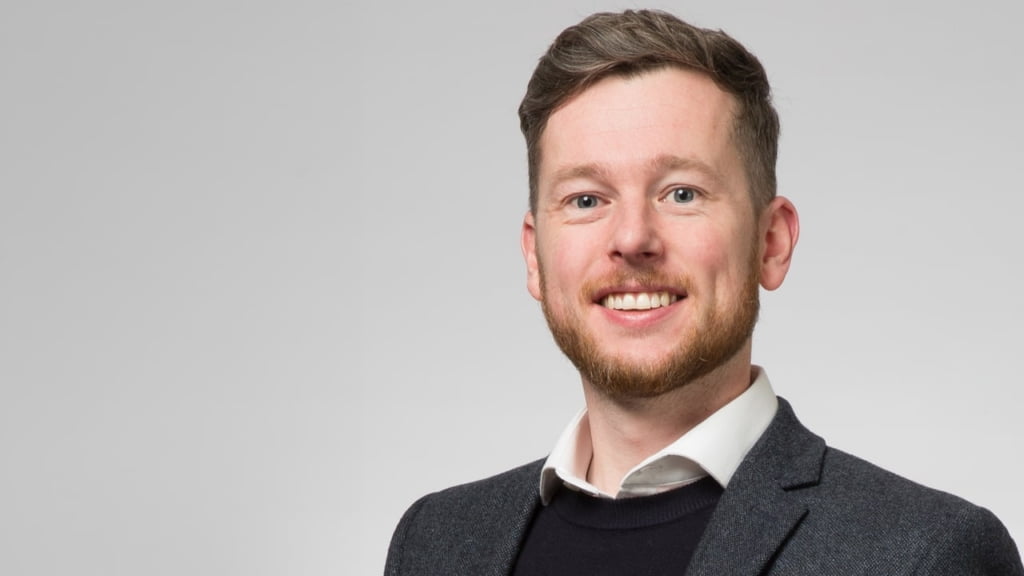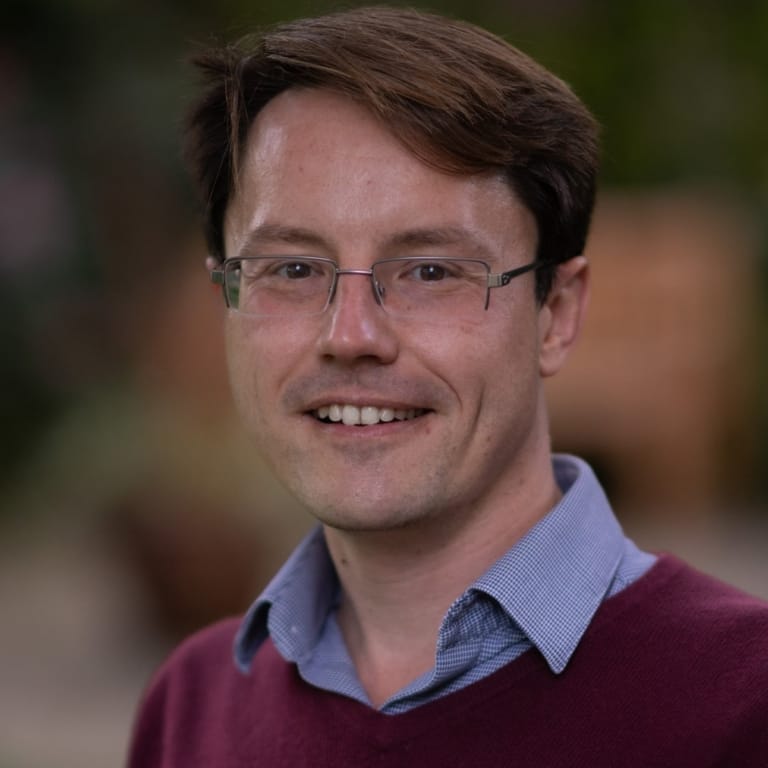Dr Christopher Stewart became a Lister Prize Fellow in 2021. We caught up with him after this year’s Lister Institute’s Annual Fellows Meeting to learn more about his work and life post-prize.
It’s been a whirlwind since the announcement, but Christopher says he still has vivid memories of the whole experience. When the Lister Committee visited his lab in Newcastle University’s Translational and Clinical Research Institute it was the first in-person event they had hosted since the COVID-19 closures.

It was a genuine career highlight to share that day with my colleagues who’d supported me so much, and more so my family who are not academics, but have always believed in me.”
The whole experience was extremely positive, he said, from the Lister Panel who were quick to put him at ease during the interviews to the simplified application steps. It was clear they were looking to “get the best out of me”, he noted, and to learn everything they could about his work on microbial communities or ‘microbiomes’ developing in early life – what factors influence this, and how that impacts short- and long-term health.
It involves “deep characterisation” of patient samples using a range of state-of-the-art ‘omic technologies. The work advances our understanding, he added, but tends to be largely limited to associations. To drill down to the underlying mechanisms, paving the way for novel therapeutics, Christopher’s group is optimising “intestinal-derived organoids” in a range of experiments to better study host-microbiome interaction in babies born prematurely.

The research is already attracting attention with a recent open-access article published by Nature Microbiology exploring strain-specific impacts of probiotics as a significant driver of the gut microbiome in very pre-term infants.
Christopher believes the Lister Prize is unique in the way it supports such basic methodological work with a flexible mandate on how the money is used to achieve the scientific goal. For example, he intends to use it primarily for recruiting and supporting postdocs.
What impressed us most at Lister about Christopher was not only his perseverance and dedication to research and team, but also the modest way he goes about it all. This was captured in full colour during our recent exchanges.
“As a first-generation student who got my undergrad and PhD from a Post-92 university, I can’t help but question if I really belong in prestigious groups such as the Lister Fellow network,” he half-joked. “But I have to say, the interactions I’ve had with current and former Fellows really has made me feel welcome and like I do belong.”
“Everyone is so incredibly friendly and supportive. It truly is a unique group and I look forward to welcoming future Lister Prize-winners in years to come!”
We are happy to have Christopher in our alumni, and we wish him and his team further success in their research.
You can find out more about the team’s work here.



